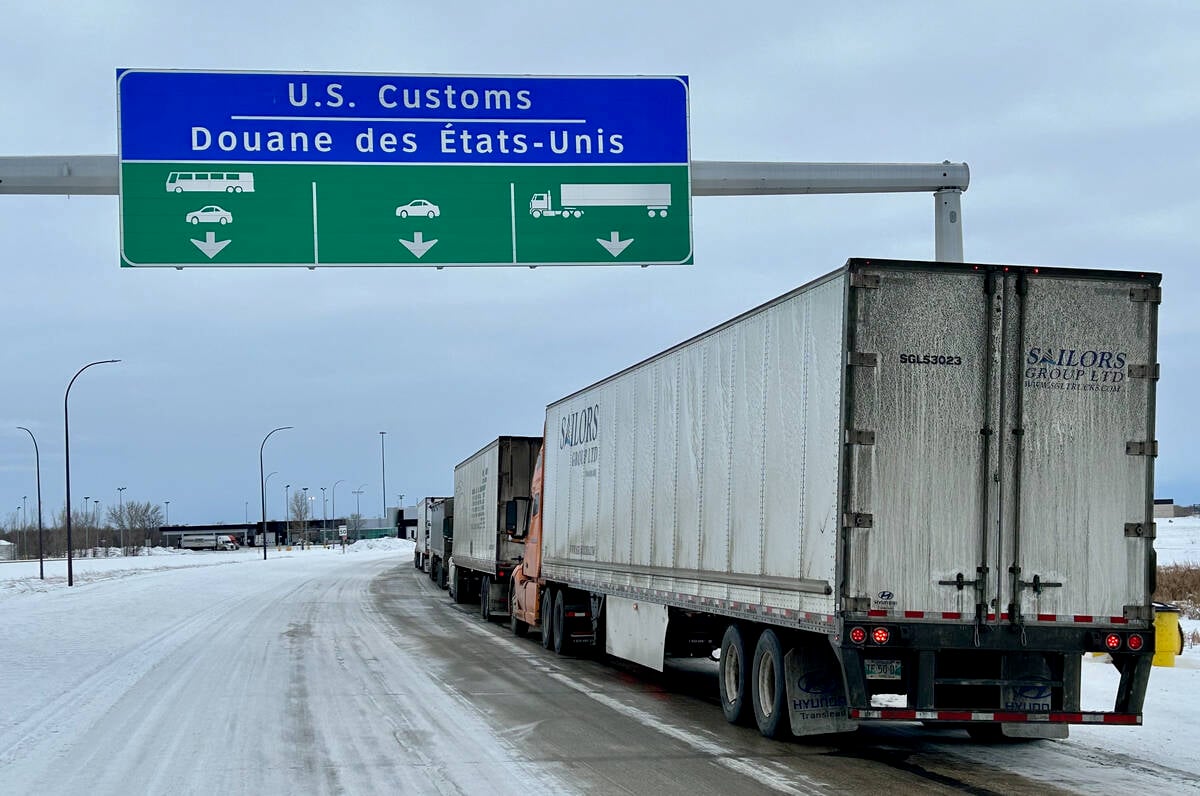Seed cleaning plants will have to keep extensive records if they want to stay ahead of the law once UPOV 91 comes into effect, said a seed official.
Lorne Hadley, executive director of the Canadian Plant Technology Agency, said seed cleaning plants will have to ensure that they don’t accidentally clean a protected seed variety for a farmer without the rights to resell it.
“If you are a person who buys pedigreed seed and uses it on your own farm and never sells common seed and never transfers it to a neighbour, you’re not affected. Everything stays the same,” Hadley told an Association of Alberta Co-op Seed Cleaning Plants meeting.
Read Also

U.S. bill could keep out Canadian truckers
The Protecting America’s Roads Act, which was tabled in the U.S. House of Representatives at the beginning of October, would “rid the country of illegal immigrant commercial truck drivers and ineligible foreign nationals.”
“For the plants involved in custom cleaning common seed, we have changes.”
Seed cleaning plants cannot clean varieties of seed protected by UPOV 91 for farmers to resell.
“I recommend you have farmers sign a contract when delivering common seed to the plant,” he said. “You need to have a system of tracking.”
The federal government announced in 2013 it would amend the Plant Breeders’ Rights Act to align with the International Union for the Protection of New Varieties of Plants (UPOV 91), an international plant breeding standard, instead of the UPOV 78 framework.
The government has said its goal is to strengthen plant breeders’ rights in Canada to encourage more plant breeding. The amendments would include farmers privilege, which allows producers to use seeds from the crops they grow.
The changes do not allow farmers who have bought protected pedigreed seed varieties to resell that seed to other farmers for seed. It is up to seed cleaning plants to ensure they don’t unwittingly participate in this illegal activity, he added.
“If some guy shows up that you haven’t seen before and has a semi load of barley seed that needs cleaning today and you’ve never seen him before, and he drove by two other plants to get there, be suspicious,” said Hadley.
“We believe, because the rules have changed, you have a liability. If you clean seed that is protected by UPOV 91, you will be included in the lawsuit.”
Dave Bishop, vice-president of the seed cleaning association, said it will be up to each seed cleaning plant to do its due diligence to ensure it is following the rules.
“The biggest concern is following the rules and how we are going to get that done,” he said.
“Until we get legislation, we’re in a guessing game. It is going to be more of a paperwork issue than anything else.”
Bishop said each plant will need to ensure they are following the rules.
“Until there is legislation we’re in a guessing game. It’s going to be more of a paperwork issue than anything else,” he said.
“It will be due diligence. You’re going to have to have a declaration.”
Association president John McBain said the organization will help seed cleaning plants make sure they understand the new rules.
The association may offer a generic form for farmers to declare the seed variety they’re getting cleaned and that they understand the new plant breeders’ rights rules.
mary.macarthur@producer.com
















